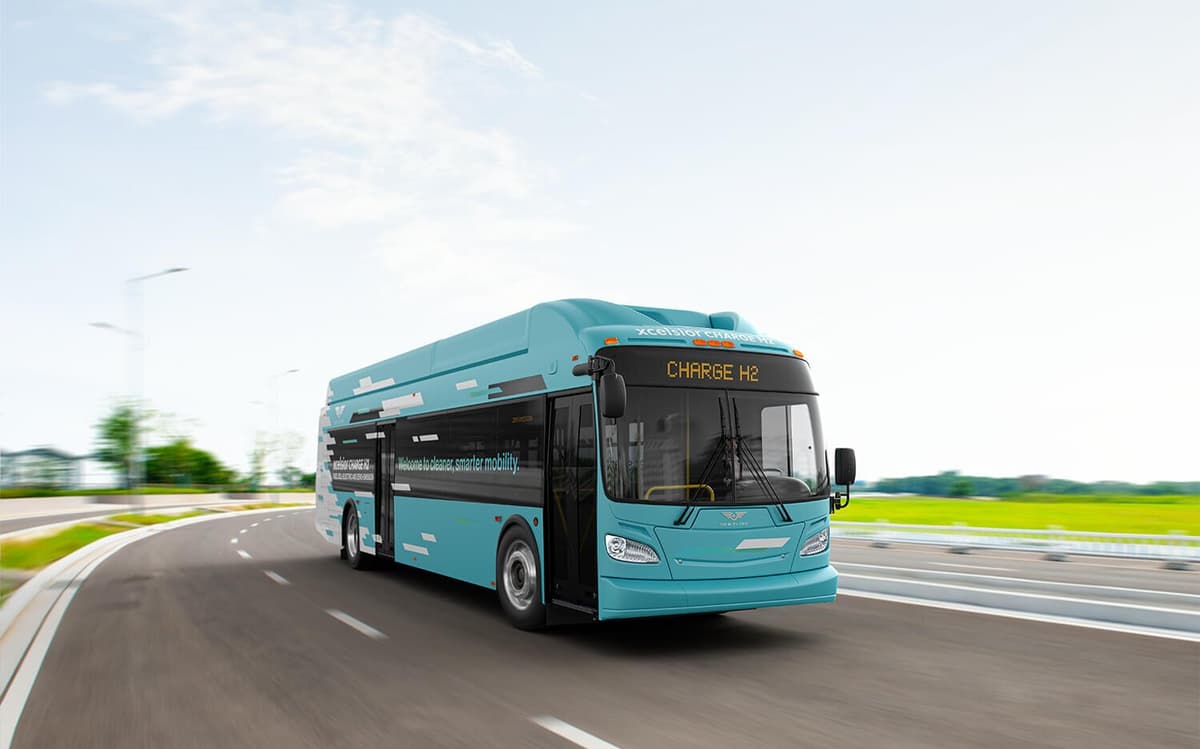California OCTA's $78 Million Investment in Hydrogen Buses Sets the Standard for Zero-Emission Transit
Key Ideas
- Orange County Transportation Authority (OCTA) to invest $78 million in 50 zero-emission buses, with 40 powered by hydrogen fuel cell technology, aligning with California's zero-emission mandate.
- Federal Transit Administration and California Climate Investments support the bus purchase through funding from the state's cap-and-trade carbon program.
- New Flyer partners with Hexagon Purus for hydrogen cylinders and Ballard Power Systems for fuel cell engines, aiming to increase zero-emission bus purchases in California.
- Partnership between New Flyer, Center for Transportation and Environment (CTE), and others works on battery-free hydrogen fuel cell bus project, focusing on reducing weight and volume of propulsion systems.
The Orange County Transportation Authority (OCTA) in California is making significant strides towards zero-emission transit by investing $78 million in 50 zero-emission buses, with 40 of them powered by hydrogen fuel cell technology. This initiative is in alignment with the state's mandate for all public transit agencies to achieve zero-emission operations by 2040. The Federal Transit Administration and California Climate Investments are supporting this move through funding generated by the state's cap-and-trade carbon program.
New Flyer, the Canadian manufacturer, will supply the hydrogen and battery-powered buses, with expectations for these vehicles to be in fleet operations by late 2026. OCTA Chair, Tam Nguyen, expressed pride in leading the industry transition to zero-emission technology, emphasizing the importance of reliable bus service while protecting the environment.
Furthermore, California's Clean Transit Rule stipulates increasing percentages of new bus purchases to be zero-emission, reaching 100% by 2029. New Flyer's partnerships with Hexagon Purus for hydrogen cylinders and Ballard Power Systems for fuel cell engines are crucial in advancing these goals.
The collaboration between New Flyer, Center for Transportation and Environment (CTE), Nimbus Power Systems, and AC Transit focuses on a battery-free hydrogen fuel cell bus proof-of-concept project. This project aims to reduce the weight and volume of fuel cell propulsion systems significantly, without requiring additional battery systems.
The efforts towards zero-emission transit in California signify a positive shift towards cleaner and more sustainable public transportation, setting a standard for environmental responsibility and technological innovation in the transportation industry.
Topics
Investing
Public Transit
Clean Energy
Transportation Industry
Environmental Sustainability
Technology Advancements
Industry Leadership
Latest News
